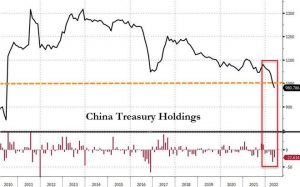
A majority of people in the United States and its major Allies — France, Germany and the United Kingdom — want to change their political systems in the wake of the devastating COVID-19 pandemic, according to a new survey. Some 93 per cent of People in France and the US, and 88 per cent of people in Britain and Germany, want some change in their political systems, according to data collected in November and December last year, according to the results of a Pew Research Centre survey released on Monday.
“Major” rather than “small” changes
According to surveys, more than half of those who want change in France and the United States want significant action. In both countries, 47 percent called for “major changes,” with 21 percent in France and 18 percent in the United States saying “radical change is needed.” Almost half of Britons also want major or radical changes rather than “small changes” or “nothing at all.” Stop current, “completely unchanged” is the very non-porridge choice of respondents in four countries.
“Many people in the United States and Western Europe struggle with public health crises and economic challenges of connectivity, as well as political disappointments at home,” the report, released with the survey’s consequences, begins.
The authors go on to note: “There are significant differences in political systems… But these four countries share some important democratic principles in common, and they have all very recently experienced political turmoil in different ways.”
The American public was particularly critical
In the poll, Americans expressed a particularly cynical view of the political system.
Of those polled, only Americans overwhelmingly (just over two-thirds) felt that the “vast majority of politicians” in their country were corrupt. When asked if it was consistent with their country that elected officials care about what ordinary people think, 56 percent of Americans said no, second only to France at 58 percent.
Of the four countries, the United States is the only one where more than half disapprove of its democracy. When American respondents were asked if they were “satisfied with the way democracy works in their country,” nearly a third said “not very satisfied,” and nearly a quarter said “not at all satisfied.”
Impact assessment of epidemic response
Across the three European countries, there was a significant difference in the views of democracy among those who were critical of their response to the outbreak and those who were positive. In France, Germany or the UK, those who felt their country’s performance was “poor” during the pandemic were mostly dissatisfied with their democracy, while those who felt their government’s response was “good” were coincidentally the opposite.
But in the US, there is little difference in attitudes between the two groups. No more than half said they were satisfied with American democracy, whether they felt the country’s response to the pandemic was good or bad.
The “Assembly of citizens” was welcomed
Surveys show that American respondents also strongly support the establishment of a “citizens’ assembly.” Such assemblies, in which “citizens clash and make suggestions on national laws,” allow “citizens — rather than members of national legislatures — to vote directly on what laws are on certain important issues.”
Both ideas were popular among majorities of respondents in all four countries, but support in the United States was very high: 79 percent supported citizen’s conventions.
France, Germany, the UK and the US have begun mass vaccinations against COVID-19, raising hopes of a return to more normal conditions. But economic woes, social problems and political unrest remain serious threats to stability in all four countries as their governments try to soothe populations still recovering from a year of unrest.

